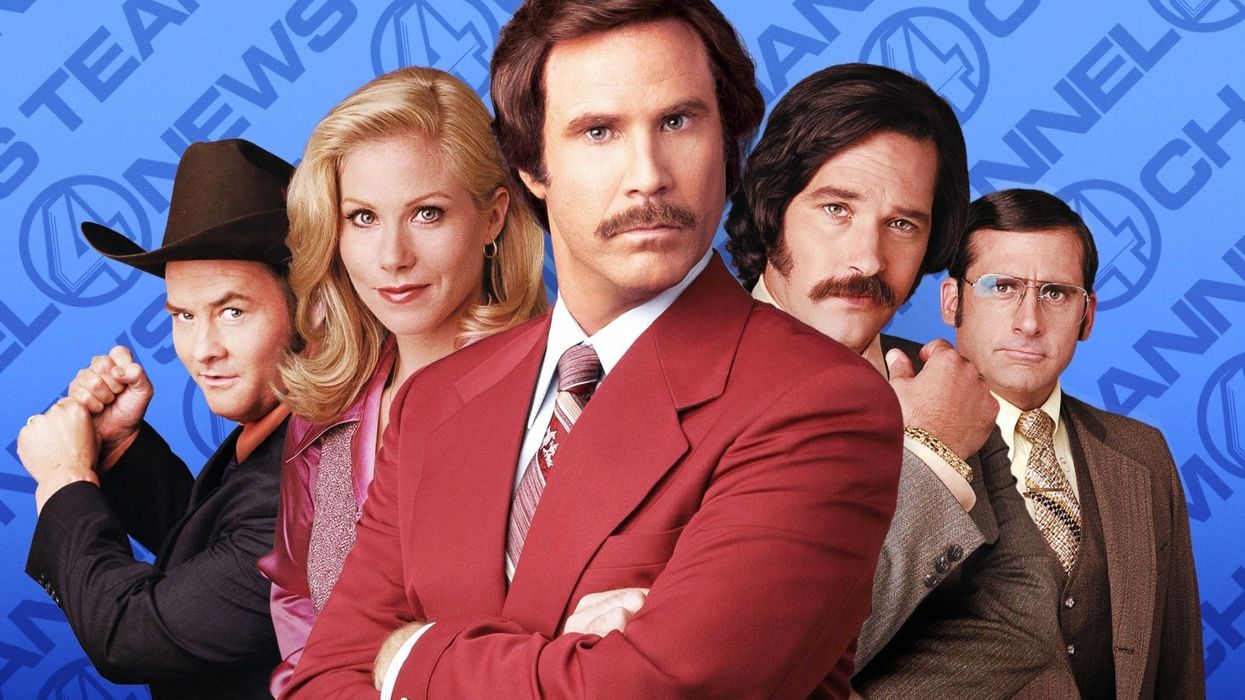Watch: Adam McKay and the Art of Smart (Dumb) Comedy
What is the key to success for Adam McKay's 'smart dumb comedies' like 'Anchorman' and 'Talladega Nights'?

Adam McKay, aside from being a respected filmmaker and Oscar winner, (for the adapted screenplay of The Big Short) is undisputedly, as Patrick (H) Willems puts it in his new video essay, the master of "smart, dumb comedy." But what is smart, dumb comedy, and how does Willems pull off his absurdist, comedic masterworks? According to Willems, it has a lot to do with structure.
McKay's comedies (all collaborations with Will Ferrell), are, unlike those of Judd Apatow ("probably the single biggest influence on American comedy films in the past fifteen years") not "grounded, relationship-driven comedies." Rather, McKay's film are anarchic, absurdist, and "not grounded in the slightest." For one, they don't take take place in our world, and, in McKay's films, "pretty much every character is a moron," and "absolutely nothing in the stories is meant to be taken seriously."
"Looking at these movies on a macro level, structurally they could all be serious dramas."
The stories are not serious, but their structures are. Willems' thesis is that much of the brilliance of McKay's films is structural: "Looking at the films on a macro level, they could all be serious dramas. Anchorman tells the story of a man's rise, fall and redemption as he learns to grapple with the concept of gender equality. Talladega Nights is a classic sports bio-pic. And Step Brothers tells an archetypical story of two people starting as enemies, then realizing they're meant to be together." McKay makes use of classic structures and familiar story beats, "but for each plot point, [he] finds the weirdest, funniest, most interesting way to approach it."
For instance, in Anchorman, Veronica Corningstone doesn't fall for Ron Burgundy because of some emotional conversation between the two, but as the result of seeing him give a "virtuosic" performance on the jazz flute. And in The Other Guys, the classic cop-drama formula, wherein a police officer is haunted by some tragedy in their past, is subverted by having Mark Wahlberg's character be haunted by his accidental (and completely absurd) shooting of Yankee Derek Jeter, which cost the team the World Series.
In McKay's films, "there's a feeling of anarchic glee....never a tension between story and jokes. The story is simply a vehicle for the jokes." Willems also points to the fact that in the third act of many comedies, "it suddenly gets serious. The movie realizes it has to deliver an emotional climax and forgets to be a comedy." This never happens in McKay's comedies. For instance, in the third act of Step Brothers, the characters have all gone their separate ways and "following in Hollywood form, we expect some sort of emotional reunion, and get one in the most brilliantly stupid way imaginable....It's making fun of the very idea of an emotional climax."
But "as silly as these movies are, all the absurdity is built on a foundation of strong characterization," posits Willems. "We understand the characters motivations, their fears, and desires. The absurd choices they make are funnier because they're consistent with who the characters are...The movies proudly mock the concept of a logical story, but at the same time operate on their own internal logic."
"The movies proudly mock the concept of a logical story, but at the same time operate on their own internal logic."
In looking for a definition of smart, dumb comedy, perhaps it's best to turn to McKay himself: "It's that weird kind of satire where you're making fun of it, but you're also doing it." And, Willems observes that McKay injects a subtle amount of politics into everything he does. For instance, Anchorman, Stepbrothers and Talladega Nights can all be seen as "subtle commentaries on Bush-era America," featuring protagonists who are "arrogant, narcissistic men with delusional views of the world. And in 2017, these [characters] might just be more relevant than ever."
Source: Patrick (H) Willems











